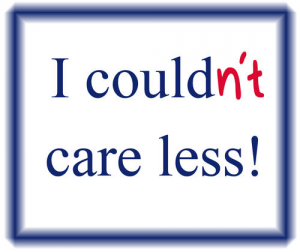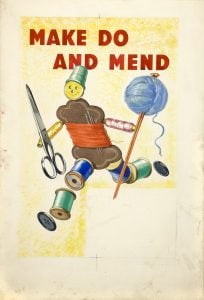Stop Saying That! Expressions You Need to Stop Getting Wrong
 I am a stickler for correct grammar. I recognize the evolving nature of language and that everyone has their own dialects, slang words, and vernaculars, but if I have to spend five minutes longer than usual deciphering something you’ve written because you refuse to use commas, you will suffer my wrath.
I am a stickler for correct grammar. I recognize the evolving nature of language and that everyone has their own dialects, slang words, and vernaculars, but if I have to spend five minutes longer than usual deciphering something you’ve written because you refuse to use commas, you will suffer my wrath.
As much as I get annoyed about grammar, there’s something that annoys me more: people getting idioms and expressions wrong. Every day I see people bungling the wording of sayings or using them incorrectly and it makes me a little bit angrier than it really should.
It’s strange, as my main grievance is often that when someone gets an expression wrong it doesn’t make sense, but many of our idioms make little sense in their correct form, without knowing their history. Anyway, here are some things you absolutely must stop using incorrectly:
I could/couldn’t care less
I could care less does not make sense. If you could care less, you must care at least a little bit. Imagine on the scale of caring, you cared a unit of one. You could care less. If you scored zero on the caring scale, you couldn’t care less. Unless of course, you somehow managed to slip into negative caring. I have heard some defend the use of could care less as sarcasm. No, it’s not. Stop saying it.

Table of Contents
Work created by the United Kingdom Government.
Make do or make due?
This is more of a spelling issue. Contrary to what you might think, this expression is not “make due.” The correct spelling is make do, as in the British WWII campaign of “make do and mend”, which involved things like reusing your potato peel, darning your socks, and making dresses out of curtains (or so I’m led to believe). In the UK, “do” and “due” are pronounced differently, so this is not a problem there, but I see it all over the Internet, so it won’t be long before it invades. Stop it in its tracks now to prevent this from continuing.
Never fails to disappoint
I follow a Twitter account called @Disappointweets, which retweets people using this phrase to mean the opposite of its actual meaning. Let me tell you, many, many people don’t know what it means. What never fails to disappoint means is that the thing, or perhaps person, you are referring to always disappoints. I can see where the confusion comes from. After all, this phrase is a double (or even triple) negative.
Let me deconstruct it for you to make things a bit simpler: First, we have the word disappoint: to let down. This is bad. Now add in fails: also to let down or to not succeed. Add the two together, fails to disappoint and we now have a positive (it’s like maths!). The thing you are describing is not succeeding in letting you down. But now we qualify it with never. If the phrase was “always fails to disappoint,” that would be good. Never fails to disappoint is super bad.
Have your cake and eat it vs. eat your cake and have it
This idiom frustrated me until just the other day. “But it makes no sense!” I cried, “Of course you can have your cake and eat it. That’s the point of cake!” It wasn’t until I saw someone point out that actually, the phrase is you can’t eat your cake and have it that something clicked and it suddenly made sense. “Oh!” I yelled (I really did). It was like an epiphany. Of course, you can’t eat your cake and still have it in front of you. The whole world suddenly fell into place. Let us go forth and start using this correct usage that actually makes sense.
If you are learning English and would like to improve your conversational language skills, why not seek the help of a professional tutor? They can help you spot the phrases you are using wrong so you can convey your messages clearly, and so much more! Explore our Online English Courses and discover all they can do for you!
Are there any phrases or idioms you see people getting wrong all the time?

Photo by Andrea Piacquadio from Pexels


